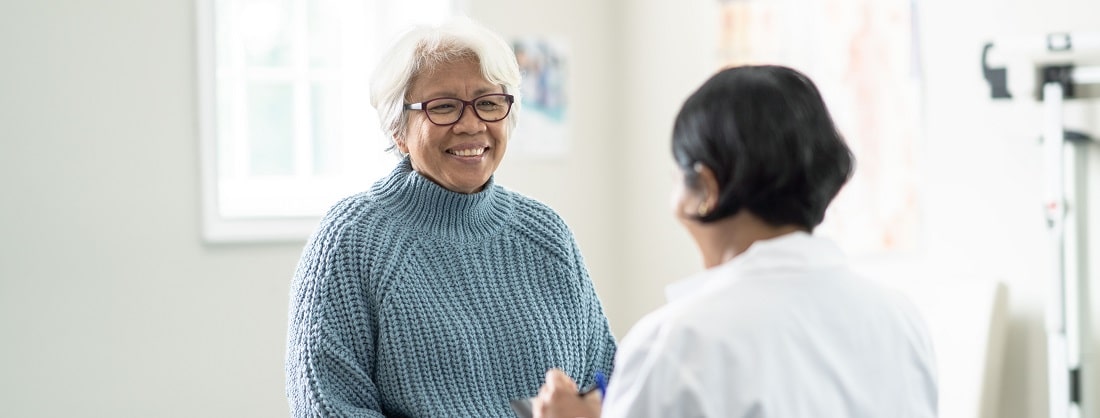How to Make the Most Out of Your Oncology Appointment
Heading to an oncology visit can be a daunting experience, filled with questions, uncertainties and a range of other emotions. However, with the right approach and preparation, you can make the most out of each oncology appointment, ensuring you receive the best care, support and information during this crucial time.
Come prepared with the required information. To ease the process of checking in, be sure to come with the right documents and information such as an ID, proof of insurance, a list of current medications and the doses, a list of other physicians you see, and an understanding of your and your family’s medical history. However, if you are still unsure what information to bring along with you, you can call the clinic and ask prior to your appointment.
Come early to check in before your appointment. Running late can easily add extra stress and frustration. Arrive between 15 to 20 minutes before your scheduled appointment time. This gives you enough time to check in with the receptionist, complete any necessary forms and have a moment to sit before being ushered back. This recommendation also remains true for virtual appointments. Allow yourself time to log in to the platform before your appointment.
Bring someone to support you. You should not have to attend your appointments alone. In fact, having a strong support network, whether that be a family member or friend, can improve the journey and help you stay optimistic despite the current circumstances. This individual can also take notes during the appointment; remind you of any questions you may have missed; ask follow-up questions you may not have thought of; and serve as an interpreter, if needed, to ensure you understand the information.
Related: Cancer’s Impact on Mental Health
 Prepare questions to ask the physician. With such a diagnosis, you probably have a long list of questions to ask. When the time comes to meet with your oncologist, you want to make sure your questions are answered. Here are questions you may want to ask the physician:
Prepare questions to ask the physician. With such a diagnosis, you probably have a long list of questions to ask. When the time comes to meet with your oncologist, you want to make sure your questions are answered. Here are questions you may want to ask the physician:
- What type of cancer do I have, and what stage is it?
- Is there a prognosis at this time?
- What is your experience in treating patients with the same cancer?
- Do I need any additional tests to confirm my diagnosis or to get me started on the treatments?
- What treatment options are available to me that you recommend? What are the side effects of the treatments that I may experience? How long are the treatments?
- What about clinical trials? Are there any that I may be eligible for? What is the success of clinical trials?
- Regarding my diagnosis, what are things I should and should not do to ensure I remain in the best health possible?
- If I have questions or concerns moving forward, whom do I contact? Do I contact the clinic or have a special person on the care team I can call?
- What support and resources are available to me?
Related: Diagnosed With Breast Cancer? Ask These Eight Questions
Take notes during your appointment. It may be a simple step that is often overlooked but taking notes during your appointment becomes a resource that you can refer to at a later date and serves to keep your thoughts and appointment information organized. This also is beneficial as you do not have to solely rely on memory to recall important details discussed during the appointment. An additional tip is to store your notes somewhere that is accessible, whether that is on paper or through an app on your phone.
Confirm all important information before leaving. Always verify details from your appointment and review any critical information or next steps with your physician before leaving. Such information as prescription changes, upcoming tests and treatments, and even any lifestyle adjustments like diet and exercise are examples of what to verify so that you know what to do moving forward.
Making the most of your oncology appointment is about taking control of your healthcare journey and becoming an empowered patient. Being prepared helps you approach each visit with confidence and clarification so that you can play an active role in the decision-making process. Your appointments with your oncologist are opportunities to gain knowledge and receive guidance on your health. Remember, you are not alone. Your care team is there every step of the way to guide and support you toward better health and healing.
To schedule an appointment with one of our oncologists, call our office.
